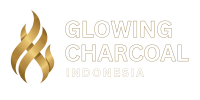Avoid These 5 Mistakes When Importing Coconut Charcoal for the First Time

Entering the coconut charcoal market can be an exciting opportunity—especially with rising demand for premium-grade charcoal used in shisha, BBQ, and incense industries. But if you’re importing for the first time, there are common mistakes that could cost you time, money, or even legal headaches.
Here’s what to avoid—and how to set yourself up for success.
1. Skipping Proper Documentation
Many first-time buyers overlook just how critical proper paperwork is. Missing documents like a Certificate of Origin, MSDS, COA, or Phytosanitary Certificate can cause delays, fines, or even rejections at customs.
Work with a supplier that provides a full export documentation package, including:
Material Safety Data Sheet (MSDS)
Certificate of Analysis (COA)
Certificate of Origin
Phytosanitary & Fumigation Certificate
HALAL Certification
ISO and EU REACH compliance (especially for European markets)
2. Focusing Only on Price, Not Quality
It’s tempting to go with the cheapest offer—but not all charcoal is created equal. Low-quality coconut charcoal can crack, spark, or contain excessive ash and moisture, which ruins the user experience and hurts your brand.
Always request:
Lab test results (SGS, Intertek)
Samples for quality inspection
Real photos/videos of production and packaging
3. Not Understanding Shipping Logistics
Shipping from Indonesia isn’t just about putting charcoal on a vessel. Misunderstanding Incoterms (like FOB vs CIF), container sizes, or HS codes can lead to confusion, delays, or higher costs.
Make sure your supplier:
Has experience in international shipping
Uses standard HS codes and clear labeling
Coordinates logistics to your nearest port efficiently
4. Ignoring Factory Credentials and Compliance
You’re trusting a supplier to meet global standards—so make sure they’re certified and legally operating. A professional factory should be transparent and willing to share their credentials.
Ask to see:
ISO 9001, ISO 14001, and ISO 22000 certifications
EU REACH compliance
Records of third-party inspections or audits
HALAL certificate for markets that require it
5. No Real-Time Communication or Proof
Many new buyers fear sending large payments without seeing real proof of production. A reliable factory should be able to share videos, loading updates, packaging details, and clear documentation before shipment.
Look for a partner that:
Offers production tracking
Shares container loading videos/photos
Sends timely updates with real transparency
Final Thoughts
Importing coconut charcoal doesn’t have to be a gamble—as long as you work with a certified, transparent, and experienced supplier. At Glowing Charcoal Indonesia, we specialize in helping first-time and seasoned importers avoid costly mistakes and receive consistent, premium-quality coconut charcoal every time.
✅ ISO-Certified Production
✅ EU REACH & HALAL Compliant
✅ Complete Export Documentation
✅ Real-Time Updates During Production & Loading
✅ Trusted by Clients in Germany, Turkey, Saudi Arabia, Australia, and More
Start Smart. Start with Glowing Charcoal Indonesia.
Whether you need shisha cubes, BBQ briquettes, or custom packaging, we’re ready to support your charcoal business with reliability, transparency, and speed.
📩 Contact us today to request samples, certifications, or a personalized quotation for your first order.
🔗 Let’s build your success—container by container.
